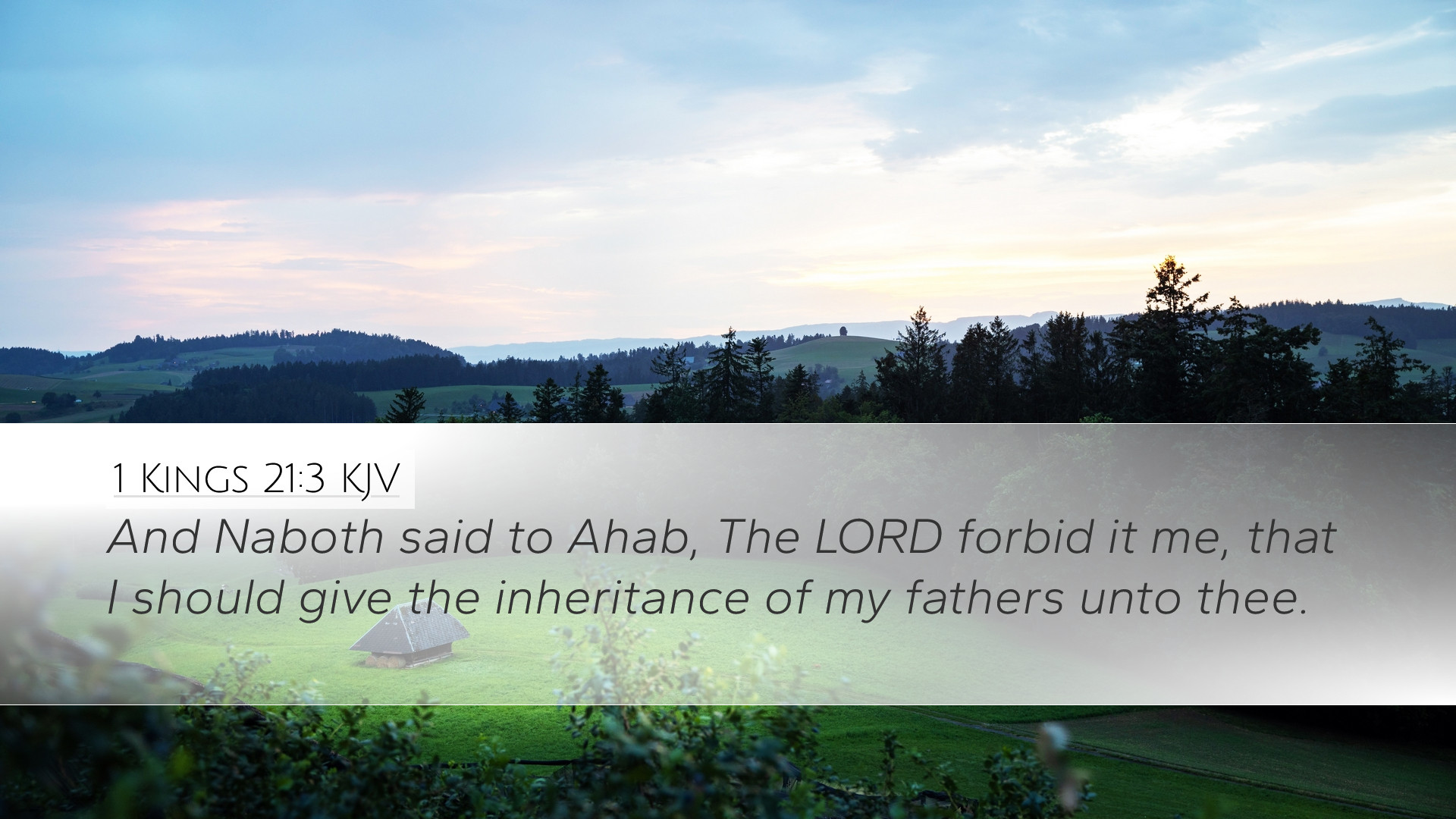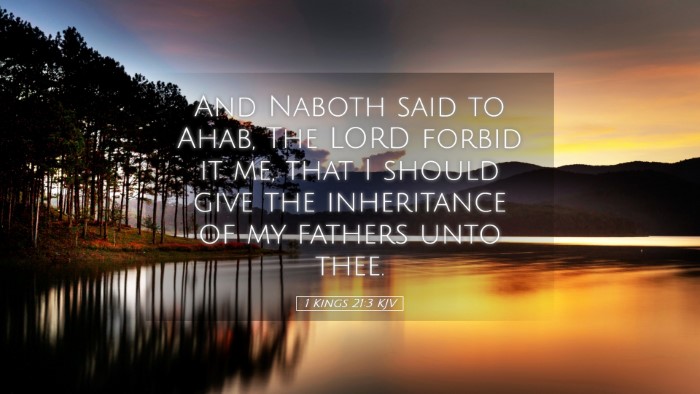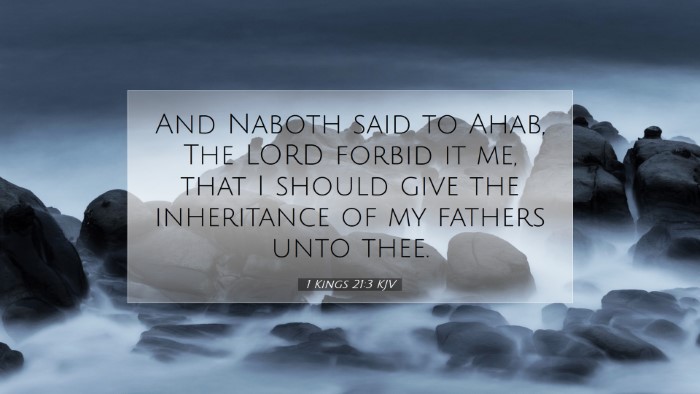Bible Commentary on 1 Kings 21:3
Verse (1 Kings 21:3, KJV): "But Naboth said to Ahab, The Lord forbid it me, that I should give the inheritance of my fathers unto thee."
Introduction
The narrative of Naboth's vineyard is one of the most poignant stories in the Old Testament, illustrating themes of justice, covetousness, and the sacredness of divine inheritance. This commentary draws insights from renowned public domain authors, including Matthew Henry, Albert Barnes, and Adam Clarke, providing a layered understanding of this significant verse.
Contextual and Theological Background
Historical Context: King Ahab of Israel sought to expand his personal estate by acquiring Naboth’s vineyard, which was situated near his palace in Jezreel. Naboth, however, represented the faithfulness of Israel’s connection to its land and heritage.
Theological Significance: The demand for Naboth’s vineyard can be seen as a violation of God's command regarding property rights and inheritance. The land was not merely a commodity; it was a divine gift to clans and families as part of God’s covenant with Israel.
Exegesis of 1 Kings 21:3
Naboth's response to Ahab's request is profoundly significant. His assertion, "The Lord forbid it me," emphasizes his deep reverence for God’s laws and the importance of the land he inherited:
- Divine Sovereignty: Naboth recognizes that the land belongs to God and that he cannot sell it without transgressing divine commands (Leviticus 25:23).
- Heritage and Identity: The vineyard symbolizes not only Naboth’s familial heritage but also the broader familial and national identity of Israel, which is tied to the land itself.
Commentary Insights
Matthew Henry’s Perspective
According to Matthew Henry, Naboth’s steadfastness in rejecting Ahab's proposal exemplifies the integrity of one who is deeply committed to the Lord’s commandments. Henry asserts that Naboth's refusal is a matter of faithfulness not only to his ancestors but also to God. His rightful claim, protected by divine law, reveals the tension between secular authority and divine commandments.
Albert Barnes’ Commentary
Albert Barnes emphasizes the importance of Naboth's character as he stands against a powerful king. He points out that Ahab's request is suggestive of tyranny, while Naboth's response embodies true nobility and devotion to God’s laws. Barnes notes that Naboth's vineyards were not merely plots of land but sacred trusts from the Lord, which he could not willingly surrender.
Adam Clarke's Analysis
Adam Clarke delves into the implications of Naboth's statement, arguing that it is a clear declaration of God-given rights and the moral duty to uphold them. Clarke articulates how Naboth's integrity stands as a beacon of resistance against the temptations of power and affluence. He highlights that Naboth’s lineage and heritage are held in higher esteem than any earthly gain, reinforcing the idea that true wealth lies in obedience to God.
Practical Applications
The story of Naboth provides numerous lessons for contemporary believers:
- Faithfulness to God's Commands: Each believer is called to uphold the values and laws set forth by God, even in the face of opposition or pressure from authority figures.
- Understanding Our Inheritance: Just as Naboth understood the significance of his family’s inheritance, believers today are encouraged to grasp their spiritual heritage and identity in Christ.
- Resistance Against Injustice: The narrative exemplifies the importance of standing firm in faith and justice, which can inspire individuals to advocate for righteousness in their communities.
Conclusion
1 Kings 21:3 serves as a powerful testament to the importance of faithfulness in the face of moral conflict. Naboth’s unwavering stance against the encroachment on his God-given rights encourages modern readers to reflect on their own values and the importance of standing firm in the truth. This verse challenges us to prioritize divine mandates over human desires, reminding us that our legacy in faith is anchored in our adherence to God’s commands.


